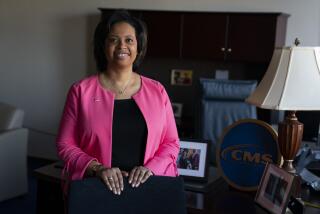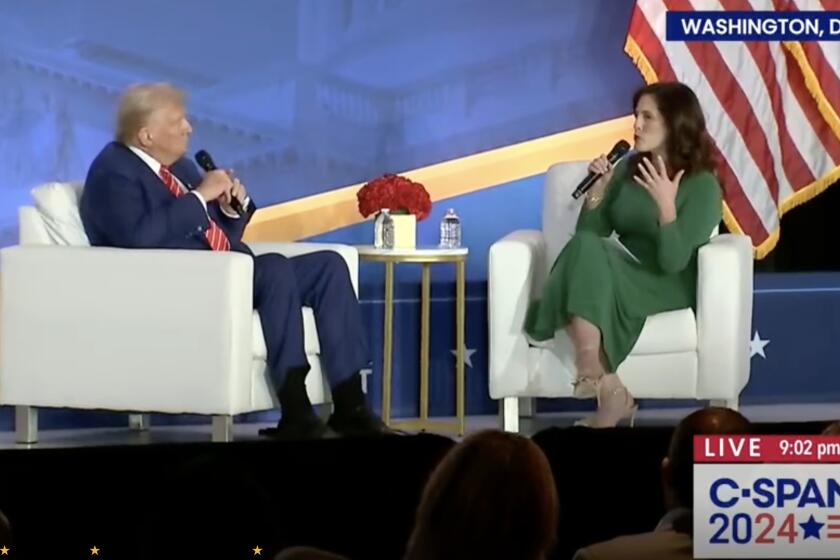Con Artists Use ‘900’ Numbers to Swindle the Jobless
WASHINGTON — Con artists are cashing in on the recession with telemarketing scams that promise credit cards, loans, even jobs in Kuwait, consumer advocates and regulators say.
“The telephone is the weapon of choice” for today’s swindlers, and they are using “900” numbers to prey on the jobless, said Linda Golodner, executive director of the National Consumers League.
The schemes exploit bad credit ratings, bankruptcies and fears that the loan market is tight, said a consumer coalition calling itself the Alliance Against Fraud in Telemarketing.
A rash of 900 numbers and newspaper ads have surfaced in recent weeks touting jobs to rebuild Kuwait.
But Middle East job prospects are dim and phone-callers are wasting their money, the coalition said at a news conference.
Some of the 900-number promotions can cost job seekers $100 apiece for data about which companies are doing business in Kuwait. In fact, much of the work is months or years away, the coalition said.
When jobs become available, state and federal government agencies will provide information about them for free, said Stephen Jones of the Council of Better Business Bureaus.
The taped message on one 900 number recited an address so rapidly that construction workers looking for jobs had to call repeatedly to write it down.
One customer called 10 times trying to get the address, running up hundreds of dollars in charges, said Barry Cutler, director of the Federal Trade Commission’s Bureau of Consumer Protection. The information turned out to be bogus.
The help-wanted sections of newspapers carry 900 phone numbers. One such operator in New York charged callers $2.50 a minute with recorded information about grooming tips. Customers had to ring up $13.50 in charges before getting vague information about specific types of jobs, the coalition said.
Telephone con artists are “having a boom day” by offering advance fee loans to people who are out of work, said John Perkins, Missouri’s commissioner of securities.
Down-on-their-luck customers supposedly can get a no-interest line of credit, if they’ll just pay a few hundred dollars in cash up front. The credit line never materializes, Perkins said.
Ten indictments have been handed up in one such operation in Houston that offered $100,000 credit lines falsely said to be arranged through an offshore bank in the British West Indies.
“Don’t get suckered into listening to a phone pitch,” Perkins said.
Customers who ordered “national gold credit cards” found they are made out of cardboard, said Dennis Brosan, a security director at Visa International. The cards are unusable, except to buy items out of a particular mail-order catalogue.
“If it sounds too good to be true, it probably is,” Golodner said.
A Potomac, Md., housewife sent off cash to a company that promised $500 to $1,000 a week for working at home stuffing envelopes.
She never got paid and never got her money back, said Shirley Rooker, president of a nonprofit consumer dispute resolution service affiliated with 21 radio and TV stations.
Among the rules to follow: Don’t give credit card numbers over the phone, Golodner said.
“If they won’t send you the information without you paying for it, don’t do it,” Rooker said.
“Put the burden on the caller,” said Fowler West, a commissioner on the Commodity Futures Trading Commission.
Golodner said consumer crime gets overlooked by financially strapped law enforcement agencies that need more money to do their jobs.
More to Read
Inside the business of entertainment
The Wide Shot brings you news, analysis and insights on everything from streaming wars to production — and what it all means for the future.
You may occasionally receive promotional content from the Los Angeles Times.










